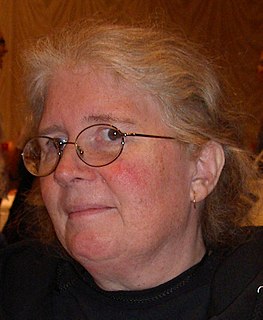A Quote by Ronald D. Moore
It's been an old saw in science fiction for a long time, since 'Frankenstein,' that we're going to create life that's going to turn on us.
Related Quotes
Back when the concept of organ transplants qualified as science fiction, novelist Maurice Renard wrote a thriller called 'Les Mains d'Orlac.' Call it a bastard offspring of 'Frankenstein;' its plot revolved around the old theme of Science Giving Us Stuff We Shouldn't Have - in this particular case, restoring severed body parts.
I have always been intensely uncomfortable with the idea of a science fiction writer as prophet. Not that there haven't been science fiction writers who think of themselves as having some sort of prophetic role, but when I think of that, I always think of H.G. Wells - he would think of what was going to happen, and he would imagine how it would happen, and then he would create a fiction to illustrate the idea that he'd had. And no part of my process has ever resembled that at all.
It had also been my belief since I started writing fiction that science fiction is never really about the future. When science fiction is old, you can only read it as being pretty much about the moment in which it was written. But it seemed to me that the toolkit that science fiction had given me when I started working had become the toolkit of a kind of literary naturalism that could be applied to an inherently incredible present.
When I was in my late twenties, a friend suggested that, since I was an avid SF reader and had been since I was barely a teenager, that since it didn't look like the poetry was going where I wanted, I might try writing a science fiction story. I did, and the first story I ever wrote was 'The Great American Economy.'
I think all of us begin as writers. I wanted to be a writer from the time I as eight, long before I heard of jazz. The question is, once you have that obsession, what is your subject going to be and you often don't know for some time. It might become fiction, it might be non-fiction, and if it's non-fiction it can go in any number of directions.
I'm not much of a math and science guy. I spent most of my time in school daydreaming and managed to turn it into a living. When I was making "Star Wars," I wasn't restrained by any kind of science. I simply said, "I'm going to create a world that's fun and interesting, makes sense, and seems to have a reality to it."


































